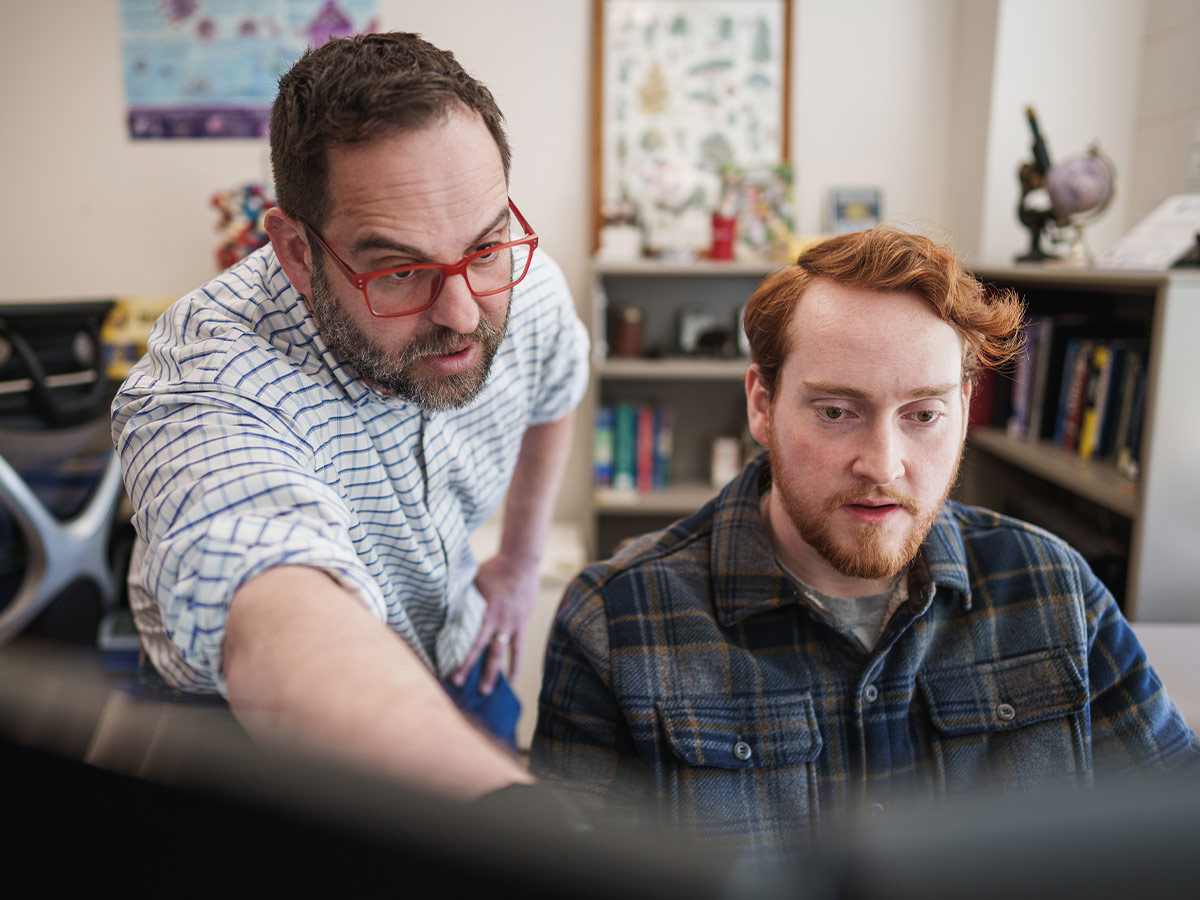
David Needle (left), pathology section chief at the New Hampshire Veterinary Diagnostic Laboratory, and doctoral candidate Lawrence Gordon review data as part of their research. Needle and a team of researchers and colleagues at UNH’s Hubbard Center for Genomic Studies (HCGS) gained national attention for their breakthroughs in canine virus research.
Breakthrough
Mysterious dog illness research gets a boost
UNH receives significant grant from AKC’s Canine Health Foundation
Last fall, David Needle, pathology section chief at the New Hampshire Veterinary Diagnostic Laboratory (NHVDL), and a team of researchers and colleagues at UNH’s Hubbard Center for Genomic Studies (HCGS) gained national attention for their significant discovery in the mystery, as canceled dog parades and the worries of pet owners across the country made news headlines.
Veterinarians described the illness as a respiratory disease that can cause coughing, sneezing and lethargy; it can sometimes lead to pneumonia and does not respond to antibiotics.
The UNH team identified a small portion of the genome of a previously uncharacterized bacteria that may be causing the illness, using genetic sequencing of samples from 70 dogs. They have continued to explore the bacteria, and the hope is that the new funding will bolster that process and perhaps lead to finding ways to treat the sickness.
Now, that work is receiving a major boost thanks to a grant from the American Kennel Club (AKC) Canine Health Foundation, secured in early May.
The grant — which totals a little more than $308,000 — is the first UNH has ever received from the AKC and is particularly significant because the university does not have a veterinary school, says Needle, who is an associate professor in the College of Life Sciences and Agriculture (COLSA).
“We’re going to be able to use this funding to leverage the best genomic sequencing that exists to really define this pathogen,” Needle says. “It can help direct future research but also potentially help direct treatment.”
UNH is uniquely positioned to carry out that work, thanks to the facilities in place at the NHVDL and the Hubbard Center, Needle says. He pointed to previous investments that have created a “robust core facility” that will allow the team to take advantage of the best long-read technology in relation to the research. This recent grant builds on individual donors’ support for both facilities: the Hubbard Center was founded in large part with a gift from longtime UNH benefactors Oliver, Austin and Leslie Hubbard, who all graduated in the 1920s, and whose philanthropy, which spans decades, continues to have a major impact on the university. While the veterinary lab is a state facility, it benefits from UNH donor support, most notably gifts from the Zock family.
That means that while the AKC grant will certainly further the current investigation regarding the dog illness, it could also potentially have more significant long-term impact.
“At the very least this funding will let us hammer down and define this bacteria better, but we’re also going to find things out that are going to be informative and helpful in the ways we characterize respiratory disease more broadly,” Needle says.